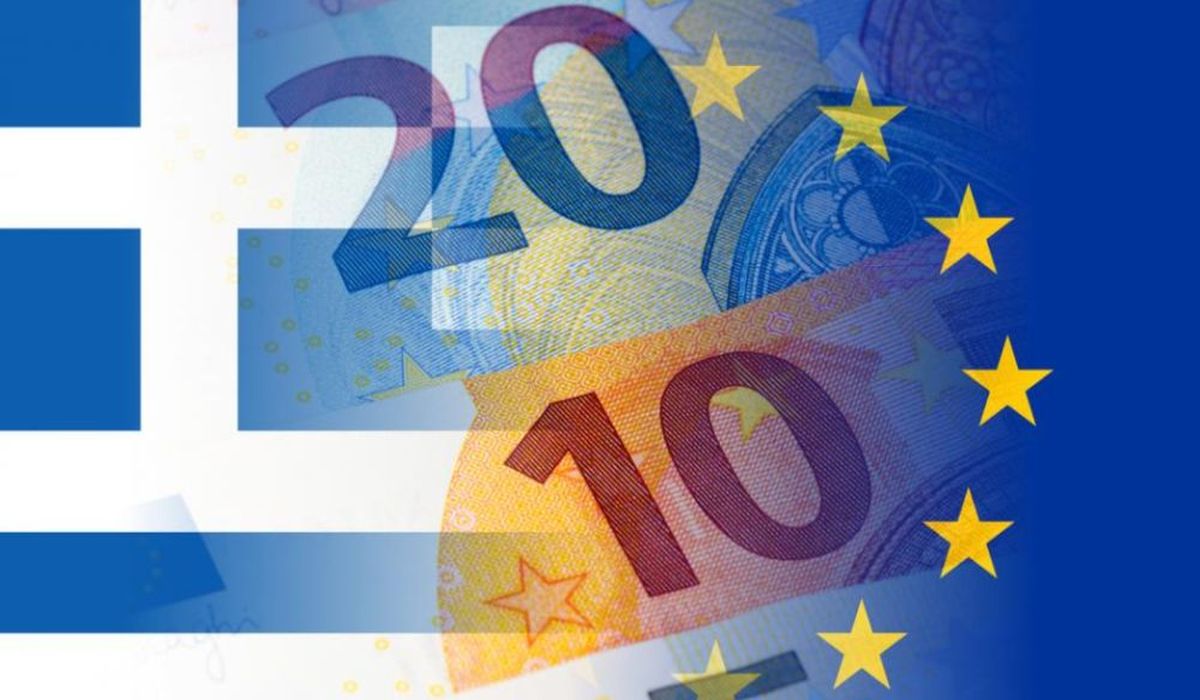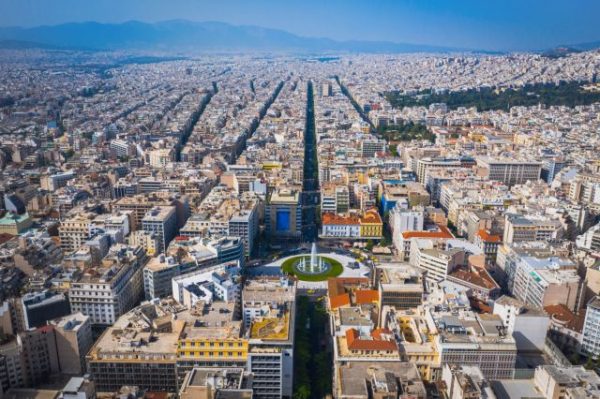
The government expects the first 4 billion Euros of the Recovery Fund next Friday, as stated by the Deputy Minister of Finance in Parliament, Theodoros Skylakakis, and thus the first projects with a total budget of 1.42 billion euros are being implemented. They concern the modernization of public infrastructures and the digitization of archives, the improvement of the equipment of the Independent State Revenue Authority (AADE), the expansion and support of the National Telecommunication Network – Coupling II, the strengthening of systems for the digital service of citizens, the improvement of the investment environment through the spatial planning, the northern part of the E65 highway and the restoration and promotion of the monuments of the Acropolis of Athens.
Of the 30.5 billion euros, 12.7 billion euros are loans and are expected to mobilize double the investment resources, thus, according to the Deputy Minister of Finance in Parliament Theodoros Skylakakis, the largest leverage of investment resources in the history of the country. It is noted that a report by Oxford Economics records that Greece receives the most money from any other European country, by a large margin, 20% of GDP, compared to 15% which is the next percentage. At the same time, according to a study by the Bank of Greece, the effective implementation of the National Plan can bring GDP growth of 6.9% by 2026, which can reach 9.9% in the longer term (20 years).
The loans, which will be provided through commercial banks and financial institutions, will finance private investment and projects of more than 20 billion euros, targeting green transition, digital transformation, innovation and research, extroversion and growth through mergers and exports. The maximum funding of projects will be 50%, and the participation of banks and investors at least 30% and 20% respectively. There is a long repayment period (10 to 12 years) as well as a grace period (up to 2 years). Borrowing costs will range between 0.2% and 0.4%.
Forecasts for the Recovery Fund show that an inflow of around € 7.8 billion is expected this year, followed by an annual inflow of € 5.31 billion for the five years from 2022 to 2026. Estimates show that Community funds are expected to give a total benefit of 60 billion euros to the real economy, while 12.7 billion of loans are expected to mobilize private investment 31.8 billion euros.
It is also estimated that the smooth absorption of the Fund’s disbursements from the second half of the year will add 1.3% to real GDP in 2021, while for this year it is estimated that investments will increase by 7%, in 2022 it will increase by 30.3% and 12.3%, in 2023 and 10.8% in 2024. Exports are expected to increase by 10.4% this year, to 13.7% in 2022 and 7.5% and 6.2% for 2023 and 2024. The goal is to increase Greek GDP by 7% and the creation of 180,000-200,000 new jobs by 2026.
In detail these concern:
The following projects will contribute to the modernization of public sector infrastructure:
1. Improving the equipment of AADE in order to provide upgraded services to taxpayers. Budget: EUR 12.2 million
2. Reform of the Financial System in the Central Administration and the other General Government GOV-ERP. The project concerns the reform of the financial and financial management system of the State in order to increase its efficiency. It is the preparation, support and development of an Enterprise Resource Planning (ERP) information system for General Government and Public Administration. Budget: EUR 36.1 million. Implementing body: Information Society SA
3. Expansion and support of the National Telecommunications Network – Coupling II, which is the network of telecommunications and telematics services of the Public Sector with a presence in 4500 points throughout the country. Budget: EUR 32.1 million. Implementing body: Information Society SA
4. Fiber optic network upgrade for the GRNET network and the connected networks, ie all the Academic and Research bodies of the country, the pan-Hellenic school network, a significant number of public hospitals and other research and education bodies. Budget: EUR 30.5 million. Implementing body: National Network of Technology and Research Infrastructures
The following projects are expected to contribute to the improvement of state services to citizens and businesses:
5. Unified Digital Infrastructure for the Service of Citizens and Businesses for the creation of the technological and information mechanisms that will allow the expansion of the digital service and transactions between public, business and citizens. Budget: EUR 69.4 million. Implementing body: Information Society SA
6. Internet services to achieve interoperability between the information systems of the Public Administration concerning the provision of a package of G2G Web services in order to facilitate the transaction between G2G state bodies, between G2C state-citizens but also state-business (G2B) , finally increasing the services that will be provided by the gov.gr platform. Budget: EUR 27.9 million. Implementing body: Information Society SA
7. Upgrading the provision of open data, the data.gov.gr platform and the provision of relevant services in the public and private sector. The project aims to expand the provision of open data to citizens, businesses, academia and the research community with a view to transparency, open governance, research and business exploitation. Budget: EUR 5.5 million. Implementing body: National Documentation Center
In addition, the following projects were approved for funding:
8. Construction of the Trikala – Egnatia section of the Central Greece Motorway (E65). This is the northern part of the E65 70.5 km long that completes the highway in order to upgrade the connection of Western Macedonia and Epirus with Central Greece and abroad through the Egnatia Highway. It is perhaps the most essential action to support Western Macedonia in the critical period of de-lignification. Budget: EUR 480 million. Implementing body: Ministry of Infrastructure
9. Digitization of Mortgage File for the National Land Registry concerning the digitization of the files of the Transfer and Mortgage system from all 390 mortgage offices in the country (the volume is estimated to exceed 600 million pages) and the development of an information system through which the files will are accessible to all interested parties and other related information systems. Budget: EUR 242.4 million.
10. Local Urban Plans and Special Urban Plans that clarify and institutionalize the urban framework (land uses, building conditions, etc.) on which the location of all types of projects and public and private investments is based. Budget: EUR 345.2 million. Implementing Agency: Technical Chamber of Greece
11. Restoration – Preservation – Promotion of monuments of the Acropolis of Athens concerning restoration works on the Parthenon and the walls, preservation of monuments, configuration of the western access, photogrammetry and 3D imprints, etc. The project enables the permanent maintenance and promotion of the monument landmark for the country and the world cultural heritage and a highly symbolic attraction with a catalytic role in attracting tourism in Athens. Budget: EUR 10 million. Implementing Agency: Ministry of Culture
12. Finally, the Digital Welfare program is proceeding to join the Recovery Fund, which is already running and providing – with income and social criteria – a voucher worth 200 euros for pupils, students, for the purchase of technological equipment (tablet, laptop, desktop), actively supporting 325,000 families with 560,000 children and young people aged 4 to 24 years. Budget 129.2 million euros.
Latest News

Trump Tariffs Jeopardize Growth: Piraeus Chamber of Commerce
The tariffs, aimed at reducing the U.S. trade deficit, are expected to have both direct and indirect effects on the European economy

EU Condemns Trump Tariffs, Prepares to Retaliate
As tensions escalate, the EU is expected to continue negotiations with Washington while preparing for potential economic retaliation.

The Likely Impact of Trump Tariffs on Europe and Greece
Trump tariffs are expected to negatively affect economic growth in the Eurozone while Greece's exports could take a hit.

Motor Oil Results for 2024: Adjusted EBITDA of 995 mln€; Proposed Dividend of 1.4€ Per Share
Adjusted EBITDA for 2024 was down 33% yoy. The adjusted profit after tax for 2024 stood at 504 million euros, a 43% decrease from the previous year

Cost of Living: Why Greece’s 3% Inflation Is Raising Alarm
Greece appears to be in a more difficult position when it comes to price hikes, just as we enter the era of Trump’s tariffs.

Fitch Ratings Upgrades the Four Greek Systemic Banks
NBG’s upgrade reflects the bank’s ongoing improvements in its credit profile, Fitch notes in its report, including strong profitability, a reduction in non-performing exposures (NPEs), and lower credit losses

Trump to Announce Sweeping New Tariffs Wednesday, Global Retaliation Expected
With Trump's announcement just hours away, markets, businesses, and foreign governments are bracing for the fallout of one of the most aggressive shifts in U.S. trade policy in decades.

Inflation in Greece at 3.1% in March, Eurostat Reports
Average inflation in the eurozone settled at 2.2%, compared to 2.3% in February

Greece’s Unemployment Rate Drops to 8.6% in February
Despite the overall decline, unemployment remains higher among women and young people.

Jerry Kalogiratos Highlights Key Role of Energy Transition and Data Demand in LNG Outlook
Energy transition and the prospects of LNG were discussed at Capital Link’s 19th Annual International Maritime Forum, during a panel discussion with Jerry Kalogiratos (Capital Clean Energy Carriers Corp.)
























![ΕΛΣΤΑΤ: Αυξήθηκε η οικοδομική δραστηριότητα κατά 15,6% το Δεκέμβριο [πίνακες]](https://www.ot.gr/wp-content/uploads/2025/03/DSC9655-2-1024x569-1-90x90.jpg)

















 Αριθμός Πιστοποίησης
Αριθμός Πιστοποίησης